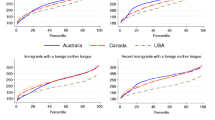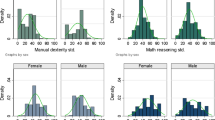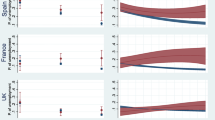Abstract.
Using the 1994–1998 International Adult Literacy Survey, this paper compares cognitive skills and employment of immigrants in Canada, New Zealand, Switzerland, and the United States. Immigrants had lower cognitive test scores than natives in each country, with the largest gaps in the US, and small gaps in Canada and New Zealand. Male immigrants in the US were no less likely to work than natives, while in the other countries, male immigrants were less likely to be employed. Female immigrants were less likely in each country to be employed than natives, with an especially large gap for the US.
Similar content being viewed by others
Author information
Authors and Affiliations
Corresponding author
Additional information
The author thanks Francine D. Blau and two anonymous referees for helpful comments and suggestions and Katsuhide Yamashita for excellent research assistance. Responsible editor: Christoph M. Schmidt.
Rights and permissions
About this article
Cite this article
Kahn, L. Immigration, skills and the labor market: International evidence. J Popul Econ 17, 501–534 (2004). https://doi.org/10.1007/s00148-003-0151-4
Received:
Accepted:
Issue Date:
DOI: https://doi.org/10.1007/s00148-003-0151-4




